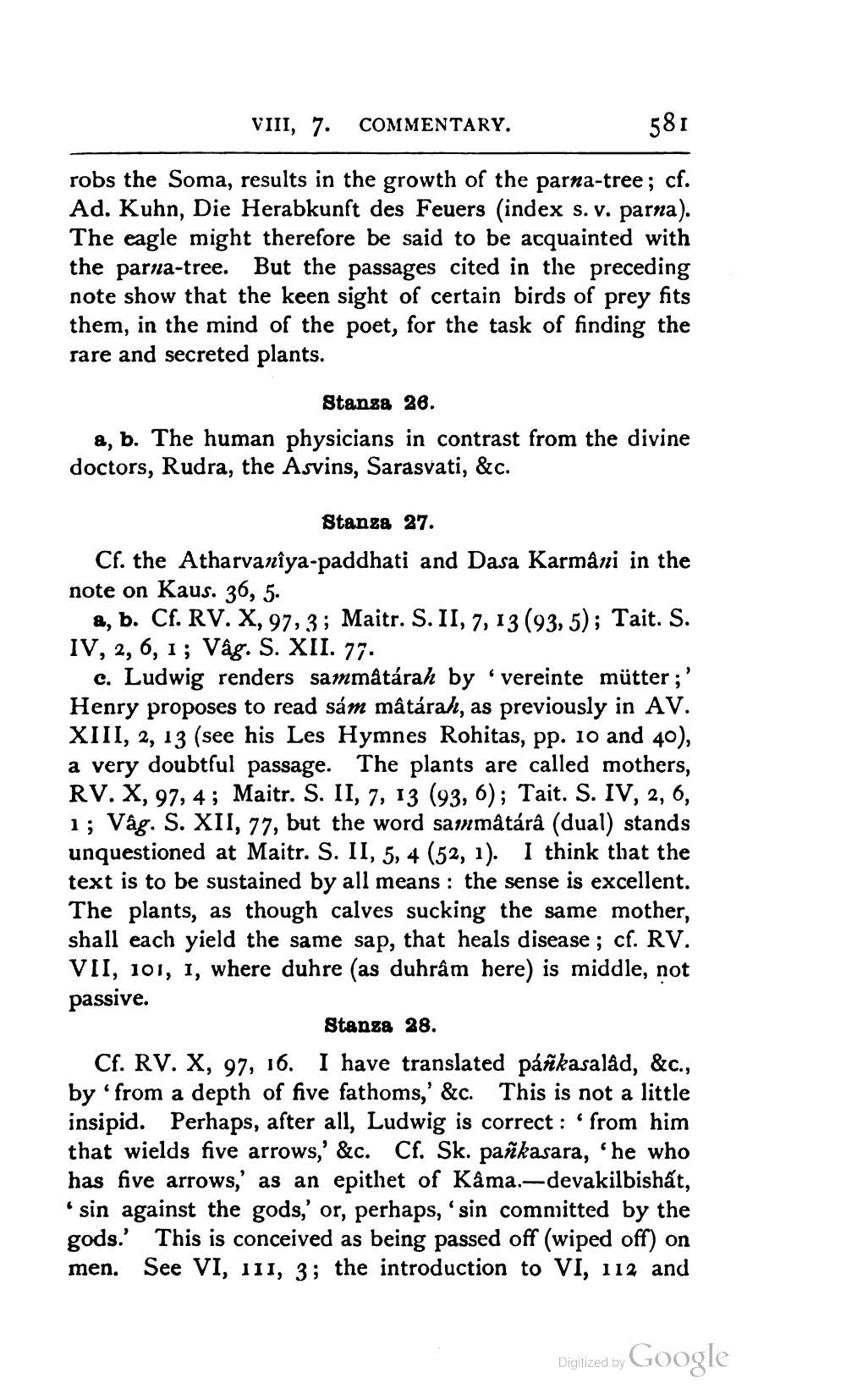________________
VIII, 7.
581
robs the Soma, results in the growth of the parna-tree; cf. Ad. Kuhn, Die Herabkunft des Feuers (index s. v. parna). The eagle might therefore be said to be acquainted with the parna-tree. But the passages cited in the preceding note show that the keen sight of certain birds of prey fits them, in the mind of the poet, for the task of finding the rare and secreted plants.
COMMENTARY.
Stanza 26.
a, b. The human physicians in contrast from the divine doctors, Rudra, the Asvins, Sarasvati, &c.
Stanza 27.
Cf. the Atharvanîya-paddhati and Dasa Karmâni in the note on Kaus. 36, 5.
8,
b. Cf. RV. X, 97, 3; Maitr. S. II, 7, 13 (93, 5); Tait. S. IV, 2, 6, 1; Vâg. S. XII. 77.
c. Ludwig renders sammâtárah by 'vereinte mütter;' Henry proposes to read sám mâtárak, as previously in AV. XIII, 2, 13 (see his Les Hymnes Rohitas, pp. 10 and 40), a very doubtful passage. The plants are called mothers, RV. X, 97, 4; Maitr. S. II, 7, 13 (93, 6); Tait. S. IV, 2, 6, 1; Vâg. S. XII, 77, but the word sammâtárâ (dual) stands unquestioned at Maitr. S. II, 5, 4 (52, 1). I think that the text is to be sustained by all means: the sense is excellent. The plants, as though calves sucking the same mother, shall each yield the same sap, that heals disease; cf. RV. VII, 101, 1, where duhre (as duhrâm here) is middle, not passive.
Stanza 28.
Cf. RV. X, 97, 16. I have translated páñkasalâd, &c., by 'from a depth of five fathoms,' &c. This is not a little insipid. Perhaps, after all, Ludwig is correct: from him that wields five arrows,' &c. Cf. Sk. pañkasara, 'he who has five arrows,' as an epithet of Kâma.-devakilbishất, 'sin against the gods,' or, perhaps, 'sin committed by the gods.' This is conceived as being passed off (wiped off) on men. See VI, 111, 3; the introduction to VI, 112 and
Digitized by
Google




